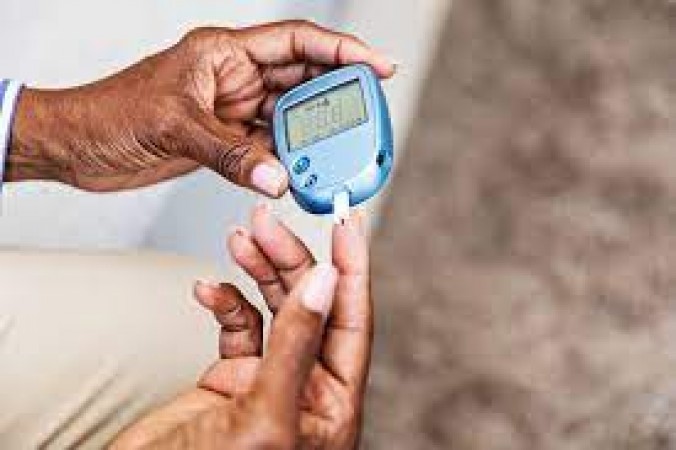Living with diabetes requires vigilant monitoring of blood sugar levels. Knowing what your blood sugar should be before and after meals is crucial for effective management. In this comprehensive guide, we'll delve into the best practices for checking diabetes at home, offering insights on ideal blood sugar ranges and actionable tips for maintaining control.
Understanding Blood Sugar Levels
What is Blood Sugar?
Blood sugar, or glucose, is a vital energy source for the body. It comes from the food we consume, primarily carbohydrates. When we eat, our digestive system breaks down these carbohydrates into glucose, which then enters the bloodstream.
Importance of Blood Sugar Regulation
Maintaining optimal blood sugar levels is essential for overall health. Fluctuations in blood sugar can lead to serious complications for individuals with diabetes, affecting various organs and systems in the body. Proper regulation is key to preventing complications such as heart disease, kidney problems, and nerve damage.
Types of Diabetes
-
Type 1 Diabetes
- This condition occurs when the body doesn't produce insulin, a hormone essential for glucose absorption.
- Individuals with Type 1 diabetes rely on insulin injections for survival.
-
Type 2 Diabetes
- Insulin resistance characterizes this type, where the body's cells don't respond effectively to insulin.
- Lifestyle factors such as diet and exercise play a significant role in managing Type 2 diabetes.
Measuring Blood Sugar at Home
Glucometers - Your Handy Tool
Glucometers are invaluable tools for individuals managing diabetes. These portable devices allow users to monitor their blood sugar levels at home, providing quick and accurate readings. Regular monitoring empowers individuals to make informed decisions about their lifestyle and medication.
Ideal Blood Sugar Ranges
-
Fasting Blood Sugar
- Before-meal blood sugar, or fasting blood sugar, serves as a baseline measurement.
- The ideal range for fasting blood sugar is typically between 70 and 130 mg/dL.
-
Postprandial Blood Sugar
- Postprandial blood sugar refers to blood sugar levels after meals.
- Target levels two hours after eating should generally be below 180 mg/dL.
Before-Meal Blood Sugar Targets
Setting the Baseline
-
Normal Range
- For individuals without diabetes, the normal fasting blood sugar range is usually between 70 and 100 mg/dL.
- However, it's crucial to consult with a healthcare professional to determine an individual's specific target range.
-
Target Range for Diabetics
- Individuals with diabetes often have personalized target ranges based on factors such as age, overall health, and the presence of other medical conditions.
- Healthcare providers work closely with patients to establish realistic and effective blood sugar targets.
After-Meal Blood Sugar Targets
Postprandial Monitoring
-
The Two-Hour Rule
- Blood sugar levels typically peak about two hours after a meal.
- Postprandial blood sugar targets aim to control these peaks, reducing the risk of complications.
-
Managing Post-Meal Spikes
- Strategies to manage post-meal blood sugar spikes include portion control, choosing low-glycemic foods, and engaging in light physical activity after meals.
- Consistent monitoring helps identify patterns and allows for proactive adjustments to lifestyle and medication.
Tips for Maintaining Optimal Blood Sugar
Lifestyle Modifications
-
Balanced Diet
- A balanced diet is fundamental for diabetes management.
- Emphasizing whole foods, fruits, vegetables, lean proteins, and whole grains can contribute to stable blood sugar levels.
-
Regular Exercise
- Physical activity plays a significant role in controlling blood sugar.
- Regular exercise enhances insulin sensitivity and helps manage weight, contributing to overall diabetes management.
Hydration and Its Impact
- Water's Role in Blood Sugar Control
- Staying hydrated is crucial for individuals with diabetes.
- Water helps regulate blood sugar levels and supports overall health.
Monitoring Your Progress
Importance of Regular Check-ups
-
Consulting Healthcare Professionals
- Regular check-ups with healthcare professionals are essential for comprehensive diabetes management.
- Healthcare providers assess overall health, adjust treatment plans, and address any concerns or questions patients may have.
-
Tracking Trends with Technology
- Diabetes Apps
- Utilizing technology for seamless monitoring is increasingly popular.
- Diabetes apps allow users to track blood sugar levels, meals, and physical activity, providing valuable insights for both individuals and healthcare providers.
Effectively managing diabetes involves consistent monitoring and lifestyle adjustments. By understanding your blood sugar targets and implementing proactive measures, you can lead a healthy and fulfilling life despite the challenges posed by diabetes. Remember, this information is a guide and not a substitute for professional medical advice. Always consult with your healthcare provider for personalized recommendations. In conclusion, taking charge of your diabetes involves a multifaceted approach that includes regular monitoring, lifestyle modifications, and collaboration with healthcare professionals. Empower yourself with knowledge, make informed choices, and prioritize your health on the journey to managing diabetes successfully.
Family life of people of these zodiac signs will be better today, know your horoscope
People of this zodiac sign may become victims of tension from neighbors today, know your horoscope
The day of these zodiac signs is going to be very special in work and business, know your horoscope
